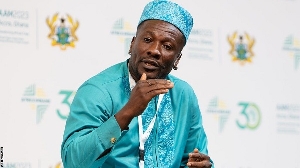Executive Director at the UK-Ghana Chamber of Commerce (UKGCC), Adjoba Kyiamah has said the lack of a bilateral deal post-Brexit has forced some companies to halt exporting their produce to the UK.
This, according to her, is threatening a lot of jobs in the tuna industry in Ghana.
The UK has signed Brexit trade deals with some 13 African countries which allow them to export some key products to Britain quota-free and without paying duties. However, it is yet to ink a new trade deal with Ghana.
Speaking to Citi Business News, the UKGCC director said the lack of a new trade deal between Ghana and the UK is threatening jobs in some industries.
“Currently I have four member companies who are directly impacted. Of these four companies, two are fruits exporters and two are canned tuna exporters and they all export to the UK.
“The canned tuna exporters have suspended trading with the UK until an agreement is reached and so our concern really is that should there be further delay, a decision will have to be taken on the survival of those businesses. So obviously thousands of jobs could be impacted,” she stated.
Madam Kyiamah further explained that Ghana’s failure to seal an agreement with the UK before the end of 2020 has also burdened some fruits and vegetable exporters.
“With the fruit exporters, they are currently still exporting and paying duties that they were not previously paying, so of course their cost of doing business has gone up.
“And so, given the current scenario, it is our hope that an agreement would be signed expeditiously between Ghana and the UK, just so that these companies and the livelihoods of the employees that work for these companies are not impacted,” she said.
The prospect of the UK formulating its own trade policy following Brexit was expected to have implications for the existing Economic Partnership Agreements (EPAs) between the European Union (EU) and some African, Caribbean and Pacific (ACP) countries.
The UK has gone ahead to sign new trade deals that continue the regime of duty-free and quota-free (DFQF) market access with a number of African countries, especially in southern and eastern Africa.
Click to view details



Business News of Friday, 29 January 2021
Source: www.ghanaweb.com

















